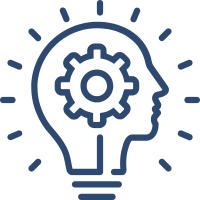
Sub-theme 1
Growing medical librarianship through innovation
This may include innovations in practice, teaching or service delivery, the use of digital solutions or the use or impacts of AI.

Sub-theme 2
Careers: flourishing careers from new professionals to retirement and beyond
This may include diversifying the workforce, support for early years and solo working, moving across sectors, progression through volunteering, sustainability and impact of the retiring workforce, or improving equity and reducing inequalities in the profession.

Sub-theme 3
Equity, equality, disparities
This may include how librarians and health information professionals are making positive progress, contributing to reductions in health inequalities, or improving access to health information for patients and the public.

Sub-theme 4
Research assessment: the impact and quality of medical research
This may include responsible biblio and altmetrics, contribution and impact of information professionals to research, and research processes.

Sub-theme 5
Evidence based practice: advancing library practice and our profession through research and evaluation
This may include conducting research, information professionals as researchers, using evidence to develop library practice, or developing information professionals in using evidence based tools and approaches.

Sub-theme 6
Health and Wellbeing
This may include health and wellbeing issues experienced by health librarians and information professionals; how health library and information services can support the health and wellbeing of staff across health and social care systems through provision of space, facilities and evidence.

Sub-theme 7
Sustainability
This may include promoting understanding of sustainability, projects and plans on how the library or information service is supporting sustainable building techniques and services, supporting research into sustainability, or sustaining access to the evidence base.
Abstract Submission
Abstract submission for ICML 2026 has now closed.
Conference Themes
In a landscape which has been irrevocably changed by the pandemic, the opportunities and challenges presented by hybrid ways of working, heightened awareness of the need to tackle societal and health inequalities and the need for collaborative working to overcome these challenges, ICML 2026 will be an opportunity to convene professionals from all over the world to explore these issues and the opportunities for change.
Flourish: growing our communities
Presentation Type
An abstract can be submitted for the meeting as one of the following presentation types:
-
Lightning Talk (5 minutes presentation + 5 minutes discussion)
-
Oral Presentation (20 minutes)
-
Poster Presentation (displayed digitally)
-
Workshop (60-90 minutes)
-
Other interactive session - please provide details
